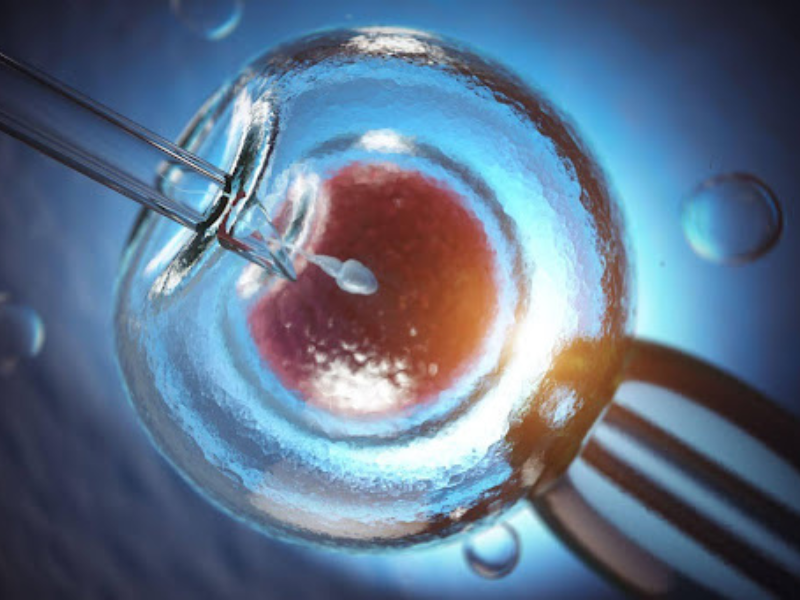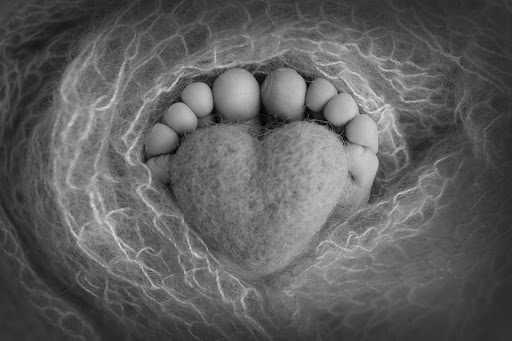
Navigating Menopause and IVF: Your Guide to Parenthood
Things to Know About IVF After Menopause
Menopause represents a significant phase in a woman’s life, marking the end of her natural reproductive years. Traditionally, this period signals the cessation of fertility, typically occurring around age 51. However, advancements in reproductive medicine, particularly in vitro fertilization (IVF), have introduced new possibilities for women seeking to conceive after menopause. This blog delves into the intricacies of IVF after menopause, explores the options available, and examines the benefits and challenges associated with this groundbreaking approach.
Understanding Menopause and IVF
Menopause is characterized by the end of menstrual cycles and a significant decline in ovarian function. The ovaries cease to release eggs, and hormone levels, particularly estrogen and progesterone, drop significantly. This natural decline in fertility has long been considered a definitive end to a woman’s ability to conceive. However, the advent of assisted reproductive technologies (ART), including IVF, has challenged this notion, offering alternative pathways for women to pursue motherhood beyond their natural reproductive years.
IVF and Menopause: The Basics
IVF involves several key steps: ovarian stimulation, egg retrieval, fertilization, and embryo transfer. In a typical IVF cycle, eggs are retrieved from the ovaries, fertilized with sperm in a laboratory, and the resulting embryos are implanted into the uterus. For women who have gone through menopause, using their eggs is not feasible due to the depletion of ovarian reserves. Instead, IVF for menopause often involves alternative methods such as using donor eggs or embryos.
IVF with Donor Eggs
One of the most viable options for women seeking IVF after menopause is the use of donor eggs. This process involves obtaining eggs from a younger, healthy donor, fertilizing them with sperm, and transferring the embryos into the menopausal woman’s uterus.
Benefits:
- Higher Success Rates: Utilizing donor eggs significantly increases the chances of achieving a successful pregnancy. Donor eggs come from younger women with healthier eggs, which can lead to higher fertilization rates and improved embryo quality.
- Reduced Risk of Genetic Abnormalities: Eggs from younger donors are less likely to be affected by chromosomal abnormalities, which can lower the risk of genetic conditions in the offspring.
Challenges:
- Emotional and Psychological Impact: The decision to use donor eggs can be emotionally challenging. It may involve coming to terms with the fact that the resulting child will not be genetically related to the mother. This can have psychological implications for both the prospective mother and her family.
- Legal and Ethical Considerations: The egg donation process involves legal agreements and ethical considerations. Navigating these aspects carefully is essential to ensure that all parties’ rights and responsibilities are clearly defined.
Embryo Adoption
Embryo adoption is another option for women undergoing IVF after menopause. In this process, embryos created by other couples through IVF are donated to the recipient. These embryos are then implanted into the recipient’s uterus.

Benefits:
- Cost-Effectiveness: Embryo adoption can be less expensive than creating new embryos through IVF. It can also reduce the overall cost of the treatment, as it bypasses the need for ovarian stimulation and egg retrieval.
- Reduced Time Frame: The embryo adoption process can be quicker since the embryos are already created and available for transfer. This can be advantageous for women who wish to pursue pregnancy sooner.
Challenges:
- Limited Control Over Genetic Material: With embryo adoption, the recipient has limited control over the genetic characteristics of the embryos. This can be a significant consideration for some women.
- Complex Legal Issues: The legal aspects of embryo adoption can be complex and vary by jurisdiction. Understanding the legal framework and ensuring all necessary agreements are in place is important.
Hormonal Preparation for IVF
Women undergoing IVF after menopause often require hormonal therapy to prepare their uterine lining for embryo implantation. Hormonal treatments typically involve estrogen and progesterone to mimic the hormonal environment needed for a successful pregnancy.
Benefits:
- Improved Uterine Lining: Hormonal therapy helps in developing a receptive uterine lining, which is crucial for embryo implantation and the establishment of a successful pregnancy.
- Enhanced IVF Success Rates: Proper hormonal preparation can increase the chances of a successful IVF cycle by optimizing the uterine environment.
Challenges:
- Side Effects: Hormonal treatments can come with side effects, such as mood swings, nausea, and an increased risk of blood clots. These side effects need to be managed carefully with medical supervision.
- Ongoing Monitoring: Continuous monitoring by a healthcare provider is necessary to ensure that the hormonal levels are appropriate and that the uterine lining is adequately prepared for embryo transfer.
Success Rates and Considerations
The success rates for IVF after menopause can vary based on several factors, including the quality of the donor eggs or embryos, the recipient’s overall health, and the quality of the uterine lining. Women considering IVF after menopause should have realistic expectations and consult with a fertility specialist to understand their chances of success.
Key Considerations:
- Age-Related Risks: Despite advancements in reproductive technology, age-related risks such as preterm birth, gestational diabetes, and hypertension need to be considered. Women need to have comprehensive prenatal care to address these risks.
- Health Monitoring: Regular health check-ups and monitoring are crucial to ensure a healthy pregnancy and to address any potential complications promptly. A multidisciplinary approach involving obstetricians, endocrinologists, and other specialists may be required.
IVF for Menopause: Legal and Ethical Aspects
Navigating the legal and ethical landscape of IVF after menopause involves understanding the regulations and guidelines surrounding egg donation, embryo adoption, and reproductive technologies. The legal and ethical considerations can vary significantly by region and may impact the overall process.
- Informed Consent: Ensuring informed consent for all parties involved is crucial. This includes understanding the implications of using donor eggs or embryos and the potential impact on the child and family.
- Long-Term Implications: Considering the long-term implications of reproductive choices, including the potential emotional and psychological impact on the child, the parents, and the donor or adopting family.
Psychological and Emotional Aspects
Embarking on IVF after menopause can be a complex emotional journey. Women may experience a range of feelings, from hope and excitement to anxiety and uncertainty. Support from mental health professionals, support groups, and fertility counselors can be invaluable in navigating these emotions.
- Counseling Services: Access to counseling services can help address emotional and psychological challenges associated with IVF after menopause. It provides a space for individuals and couples to discuss their feelings and concerns.
- Support Groups: Connecting with others who have undergone similar experiences can provide emotional support and practical advice. Support groups can be found online or through fertility clinics.

Conclusion
IVF after menopause represents a significant advancement in reproductive medicine, offering hope and possibilities for women seeking to conceive beyond their natural reproductive years. With options such as donor eggs and embryo adoption, as well as advancements in hormonal preparation, women can explore pathways to motherhood even after menopause.
However, pursuing IVF after menopause involves navigating complex medical, emotional, and legal considerations. Women need to consult with fertility specialists and seek support to make informed decisions and manage the challenges associated with this journey.
For those considering IVF for menopause, understanding the intricacies of the process, the potential benefits, and the challenges involved can provide a clearer perspective and help in making well-informed choices. With the right support and guidance, IVF after menopause can offer a viable path to fulfilling the dream of parenthood.
Ready to take the next step? Download the Miror app today to get in touch with expert doctors who can guide you through the IVF process and provide personalized care. Explore your options, receive professional advice, and connect with a supportive community.
Citations
- Practice Committee of the American Society for Reproductive Medicine. (2012). Fertility treatment in women of advanced reproductive age. Fertility and Sterility, 98(1), 1-10. doi:10.1016/j.fertnstert.2012.03.024
- ESHRE Special Interest Group on Reproductive Surgery. (2018). Assisted reproductive technologies and age. Human Reproduction Update, 24(4), 491-510. doi:10.1093/humupd/dmy012
- Ginsburg, E. S., & Nulsen, J. (2016). IVF after menopause: New perspectives. Journal of Assisted Reproduction and Genetics, 33(6), 793-804. doi:10.1007/s10815-016-0707-7

Sruthakeerthi Shenoy





